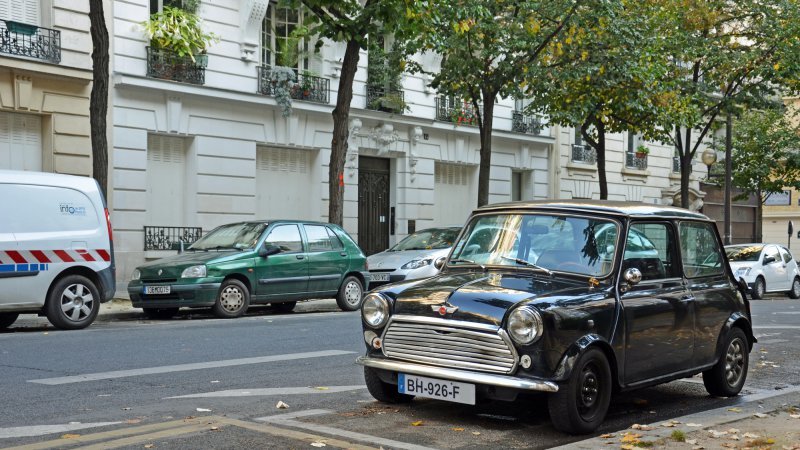What Paris Banning Pre-1997 Cars Means For Classic Owners

The measure is part of a wider project that aims to slash greenhouse gas emissions in the French capital by 75 percent by 2050.
In less than a month, cars registered in Paris will need to wear a small, round sticker (officially called an air quality certificate) on the windshield that denotes which round of emissions regulations they comply with. The stickers will help law enforcement officials tell how old a car is, and whether or not it's allowed in Paris. It's worth noting that the ban is only effective from 8 a.m. to 8 p.m. on weekdays.
The ban will be enforced the old-fashioned way: with random checkpoints set up throughout the city. Motorists who choose to ignore it will initially need to pay a €35 (roughly $40) fine, though the amount will go up to €68 (about $76) in early 2017. The ticket will be considered a relatively minor offense, one that's roughly on par with getting a parking ticket. Rest assured, you're not going to spend the night in jail for blasting down the périphérique in a Citroën BX.
The stickers will also help Paris officials keep even newer cars out of the city during pollution peaks. Major cities such as London, Beijing, and Milan have enacted similar measures in recent years in a bid to curb air pollution; Rome has even gone as far as banning all cars and motorcycles for six-hour periods.
Officials have been debating whether to enact the ban for over a year. Many expected Hidalgo and her team to make an exception for cars registered as classic vehicles, but the final version of the law makes no distinction between a concours-ready 1962 Porsche 356 and a diesel-burning 1994 Peugeot 205 with astronomical mileage. However, the fédération française des véhicules d'époque – an association that represents French classic car owners and enthusiasts – is still working hard to get the ban lifted for vintage cars.
That's because there are plenty of classics still roaming the streets of Paris. Notably, there is an unusually high concentration of smaller cars like the original Mini and the Fiat 126. Renault 4s and Citroën 2CVs aren't uncommon, there are even companies that specialize in renting tin snails to tourists. Finally, Paris is home to numerous top-dollar British, German, and Italian classics, and the city hosts the annual Rétromobile show.
At least 500,000 cars will no longer be allowed to drive in Paris in a few weeks' time, and, unsurprisingly, classic car owners aren't the only ones who are upset. Several protests are planned in the coming weeks, and a class-action lawsuit has already been filed against the city of Paris by motorists who believe the government should help them buy a post-1997 car. Part of the reasoning behind the suit is that older cars – especially the ones that aren't considered classics yet, like the original Renault Clio – will be worth next to nothing once the ban takes effect, unless their next owner lives outside of Paris.
The city hasn't commented on the lawsuit yet. However, it's re-affirmed its commitment to the law, pointing out that Parisians "deserve to breathe clean air."
The ban also applies to scooters and motorcycles built before June 1, 1999, and it's going to get much more stringent in the coming years. In 2020, only cars manufactured after 2010 will be allowed to enter Paris city limits.
Related News


